No matter what gifts we’re blessed with, or what knowledge we possess, or what career goals we hope to achieve, the name of the game remains the same: success. While our own personal definitions of the word vary, success itself does not come without its own set of challenges and struggles.
It’s a lesson learned by a talented, yet often conflicted group of millennials in the new drama series BLUE COLLAR HUSTLE, now streaming its first 2 of 6 episodes via its official web site and Youtube channel (see links below). The series, created by and co-starring Alonge Hawes, has racked up over 1,000 views for each of its first 2 episodes, and 4 more are set to follow thanks to its ongoing Seed and Spark crowd funding campaign (link also below).
Set in Stone Mountain, Georgia (where the series was produced), BLUE COLLAR HUSTLE follows the journeys of six young African-Americans who aspire to become successes in the creative arts. Yet, their hopes for stardom are tempered by the responsibilities that come with their current careers and personal lives, and by their struggle to stay true to themselves.

L-R: BLUE COLLAR HUSTLE co-stars Howard Woodburn, Quentin Williams, Roberto “Sosa” Cruz and Alonge Hawes (who also created the series).
The show’s cast features Hawes as Ajani Garvey, a man who’s determined to make the most of himself in public and private life, while honoring the shared heritage and sacrifices of those who came before him. Hawes’ sister Shani co-stars as Asha Luna, who remains hopeful for a better future despite every setback she’s been forced to deal with.
Howard Woodburn plays Anthony Lee, whose moral center is offset by his concerns about how life itself may let him down. Roberto “Sosa” Cruz portrays Jose Torres, who defied the dangers and temptations of his New Jersey neighborhood to become a successful young adult. In addition, Tijuana Agnew plays Anaya Bassett, who tries to balance the demands of her day job, plus those of parenting, studying and acting.
Anaya’s presence in BLUE COLLAR HUSTLE’s story has profound significance for Hawes as it relates to his series’ overall storyline. “She (Anaya) represents the soul of the black woman; resilient, loving, intelligent, and supportive,” he explains. “In a lot of ways, she is the most important character of the saga, as she literally represents my hope to bridge the divide between black men and women.”
Quentin Williams also stars as upstart rapper Quan Banneker, whose abrasive style is matched by his drive to be the next major hip-hop superstar, and his aim to set an example for others through his talents. “He (Quan) represents the portion of black youth who feel that the only way to leave a legacy of excellence behind is through art, as true artistry is timeless,” says Hawes of Williams’ character. “He is, metaphorically speaking, the child of Kanye West. Brash, confident, a little overly cocky, but with the potential to reach the masses.”
While the concept of BLUE COLLAR HUSTLE has now manifested itself as a web series, the idea of a drama that focused on the victories and challenges faced by young African-Americans in 21st century America began as little more than an intriguing title; one that Hawes created during the decade he spent working at his former day job for electronics chain Best Buy with co-stars Williams, Cruz and Woodburn.
“I was always working late and taking the Marta bus/train to and from work at all hours of the night,” recalls Hawes. “I’d listen to artists like Nas, Common, and Lupe Fiasco. One night, I mused that if I was a rapper, I’d name my album Blue Collar Hustle, and it would be a concept album about a day in the life of riding the Marta train, and how the different station names represented something about the black hustle in the city. Of course, I never became a rapper, but the name stuck with me.”
Eventually, much of his interactions with customers, co-workers and supervisors served to inform the business situations that his characters would confront in BLUE COLLAR HUSTLE. “So many crazy experiences happened working there that I simply had to tell them in some format or another,” adds Hawes. “I dealt with every possible situation you could name working for that company. Also, I wanted to show what it’s really like for young black people working in retail, and how a certain mindset can help you flip it into a decent career if you so desire.”

L-R: BLUE COLLAR HUSTLE co-stars Tijuana Agnew and Shani Hawes.
Although Hawes’ 10 year tenure with Best Buy played a significant role in how BLUE COLLAR HUSTLE was created, the tragic killings of two unarmed African-Americans by police officers, and the entertainment industry’s continued negative characterizations of the black community, were what really drove Hawes to get his concept jumpstarted.
“Fast forward years later, and the deaths of Alton Sterling and Philando Castille resonated with me deeply, along with the disgusting and downright vile way that black people are depicted in mainstream media,” he remarks. “(Those things), mixed with personal experiences, led me to create the series.”
Bringing together actors and filmmakers who could help bring Hawes’ vision to life was a crucial part of his mission. “BLUE COLLAR HUSTLE is my attempt to show creativity through the lens of All Black Everything,” he says. “I specifically sought out a black director, Geoffrey Henderson, who could relate to the story I wanted to tell. I specifically wanted an all black cast, including extras, and to properly portray the world of Stone Mountain, Georgia, which has a 75% black populace of middle class working blacks.”
Although traditional TV has taken huge steps forward in its presentation of African-Americans and other minorities, the medium still continues to perpetuate overly negative and inaccurate stereotypes of those key groups. Hawes hopes that BLUE COLLAR HUSTLE will work towards putting an end to such outdated and prejudiced depictions.
“So many of the stories and shows depicting us on mainstream television are absolute garbage. They literally make me sick to my stomach,” he says. “We are poor, uneducated, and don’t know how to find employment outside of selling drugs. That is the farthest thing from accurate when it comes to young black millennials.”
BLUE COLLAR HUSTLE’s ensemble cast, and the characters they play, represent a realistic view of life as experienced by young African-Americans. “You will not find this group of diverse personalities all together in any show on television,” Hawes responds. “We want to make this story as real as possible, with a few flourishes sprinkled throughout for entertainment and dramatically purposes; but we want the world to be as real as possible, with realistic situations and stories.”
BLUE COLLAR HUSTLE’s episodic narrative style adds an equally remarkable touch to the series. “…The way I structured season 1 was a little like the show LOST, which I was a huge fan of,” Hawes says. “I mean that in the aspect that I wrote every episode to be ‘centric’ to one of the main characters so that it truly feels like an ensemble, (where) no one character is more important than the other, and they all need each other to achieve their goals. I took inspiration from a lot of creative entities, but I hope that it came out unique.”
Aside from its refreshingly honest presentation of African-American millennials, a strong running thread in BLUE COLLAR HUSTLE is its music. “Quentin Williams, who plays Quan Banneker, is a real life MC/entertainer,” Hawes says. “The story in the first episode is 100% true. Quentin gave me a flash drive and I listened to the music on a whim and it just blew me away. Every episode is titled after a song from his album, so I built the world of the show around his music. Hip-hop is the life blood of the series, and we always want to stay true to the music.”
In fact, BLUE COLLAR HUSTLE’s soundtrack serves as a showcase for up-and-coming hip hop performers. “We reach out to young, unsigned artists from greater Atlanta (and other areas) to include their music in the show so that their talent and passion can be heard,” adds Hawes, who stresses that his series’ primary purpose is to accurately present the lives and problems faced by black millennials in 2017. “This isn’t an anti-white or anti-any color, race, or creed type of show, but first and foremost, it will properly portray black identity.”

BLUE COLLAR HUSTLE director Geoffrey Henderson (at center, holding the camera) surrounded by the series’ talented cast.
Even though Hawes and most of his cast (except for his sister Shani, and co-star Tijuana Agnew) have made their on-camera debuts in BLUE COLLAR HUSTLE, all involved continue to balance their day jobs with their filmmaking pursuits. Eventually, their combined efforts to capture the sights and sounds of BLUE COLLAR HUSTLE would result in an ultimately successful production.
“I tried to make it easy for the rest of the team, as I based the series characters off of roughly 75% of our real life personalities,” the show’s creator/writer explains. “We all work full time jobs, so working 8-12 hour shifts and then getting together at night for rehearsals, sometimes driving an hour out to someone’s house, was a challenging prospect. However, we were dedicated to the story and seeing it come to fruition.”
Great music, emotional drama and compelling personalities, makes BLUE COLLAR HUSTLE an entertaining and honest look at how life, love and career can impact all of us. “(The series) will show adversity, struggle, and ultimately triumph, from the lens of those who have lived it,” says Hawes of the series. “We know how to conduct ourselves in interviews. We know when to pull up our pants. We know how to raise our children. We are the hands that literally built this country. If we as a people do not understand the concept of hard work, then who does?”
Hawes also hopes that BLUE COLLAR HUSTLE will ultimately work towards making the achievements of African-Americans a commonly accepted part of life in our society. “I still read about the first black man or woman to gain a prestigious position, or acquire some sort of award, or be allowed to simply be great,” he adds. “When the concept of those social and economic chains are broken, then and only then will it cease to be about black progress, but the progress of the human race. That’s what we’re hustling for.”
(NOTE: Regarding closed-captioning/subtitling of BLUE COLLAR HUSTLE, Hawes says: “(It is) not (closed-captioned/subtitled) as of right now. That is definitely something that we plan to include in future episodes.”)
To contribute to BLUE COLLAR HUSTLE’s Seed And Spark crowd funding campaign, visit:
https://www.seedandspark.com/fund/blue-collar-hustle#media
ON THE WEB: http://geoffreysplanet.com/Blue_Collar_Hustle_Home.html
YOUTUBE: https://www.youtube.com/channel/UCQc61hXjrj9SkEkqyBtyv2w
FACEBOOK: https://www.facebook.com/TheBlueCollarHustle/
TWITTER: https://twitter.com/bch_webseries
INSTAGRAM: https://www.instagram.com/bch_webseries/

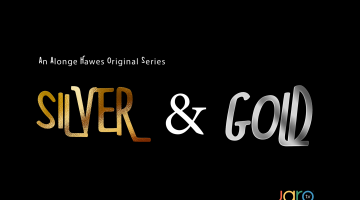



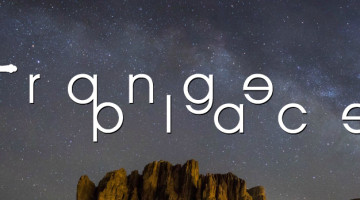
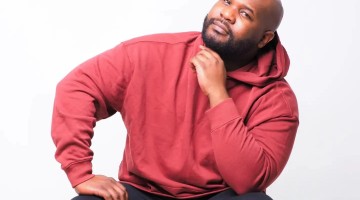
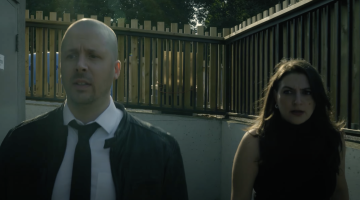
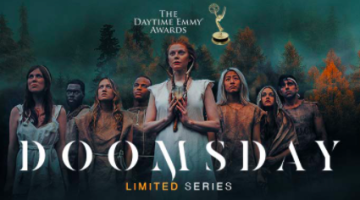

No Comment